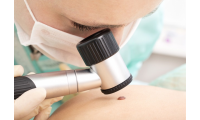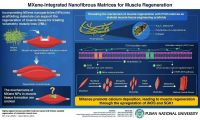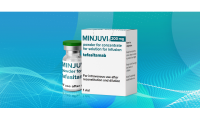-
Lilly’s Jaypirca tipped to capture 60% of BTK leukemia market, leaving AstraZeneca, BeiGene in the dust
- Source: https://www.pharma.com/marketing/lillys-jaypirca-tipped-capture-60-btk-leukemia-market-leaving-astrazeneca-beigene-dust
- 495
- January 24, 2024
-
Opdivo Plus Yervoy Reduces the Risk of Colorectal Cancer Disease Progression or Death by 79% Versus Chemotherapy
- Source: https://www.pharmexec.com/authors/don-tracy-associate-editor
- 242
- January 24, 2024
-
Immune checkpoint inhibitor target found to promote skin cancer growth
- Source: drugdu
- 351
- January 23, 2024
-
RecA protein skips “unwinding” step in DNA repair
- Source: drugdu
- 544
- January 23, 2024
-
Pusan National University Announces Potential Breakthrough for Muscle Regeneration Using Nanotech
- Source: drugdu
- 434
- January 23, 2024
-
FDA Approves Balversa for Locally Advanced, Metastatic Urothelial Carcinoma
- Source: drugdu
- 482
- January 23, 2024
-
January 19, 2024
- Source: drugdu
- 316
- January 23, 2024
-
Pfizer’s Talzenna recommended by NICE for advanced breast cancer
- Source: drugdu
- 426
- January 23, 2024
-
Biotech layoffs strike hard with PMV Pharma, Ikena, and Bayer sacking staff
- Source: drugdu
- 287
- January 23, 2024
your submission has already been received.
OK
Subscribe
Please enter a valid Email address!
Submit
The most relevant industry news & insight will be sent to you every two weeks.

















